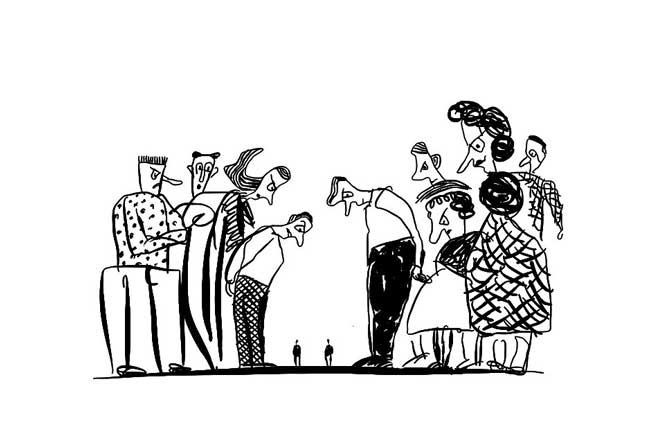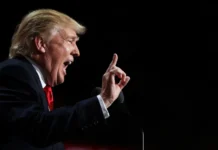The electorate is not as volatile as we might imagine
By George Megalogenis
For the third election in a row, Australians are being offered a choice between a government that can’t run on its record and an Opposition that pretends it is ready to return to office. A third election in which incumbent and challenger are bound by limited leadership experience and modest prior ministerial achievement.
Malcolm Turnbull entered parliament at the 2004 election, and Bill Shorten followed in 2007. By any objective standard, each man is a decade short of the necessary grounding to run the country.
John Howard used to talk about the 20-year rule, the apprenticeship a politician had to serve in parliament, or public life, before becoming prime minister. It was always read as a dig at his heir apparent Peter Costello, but it did contain an essential truth about the time it takes politicians to acquire the art of governing. They need at least two decades to get to know the people and the system before they are ready to serve.
The 20-year rule held from Curtin to Howard, until it was broken by Kevin Rudd, who took Labor to power in 2007 after just nine years in parliament. Julia Gillard had less than 12 years’ experience when she formed minority government after the 2010 election. They were supposed to be aberrations, to be wiped from the national memory by the return to grown-up government in 2013. Tony Abbott could make that promise with a straight face because, by the time he became prime minister, he had an extra decade’s training (19 years in total) than Kevin07. But Abbott proved notably less mature than his Labor predecessors, more William McMahon (22 years) than John Howard (also 22 years). Rather than ending the chaos, he entrenched it. The next government, whichever party forms it, will be compromised by the collective failures of the past three terms.
Nevertheless, it is still possible to see the glass as half full. Despite the pantomime of the past three terms of government, and Turnbull’s failure to live up to expectations, the political marketplace has been absent one potential danger: extremism. This is surely a thing of wonder when set against the US presidential contest. The Australian cycle of challenge, let-down and fresh challenge has not radicalised our politics. On the contrary, in each palace coup the party in power turned to the candidate who offered to lower the temperature. The leader under siege did attempt to play an ideological or tribal card, but the public shrugged. The workers wouldn’t unite for Rudd against the mining companies, women didn’t rally for Gillard, and Abbott couldn’t incite the mob to go over the top with him in the culture wars.
Australians have not lost their faith in the idea of government. We loathe politicians, and are quick to write off the prime minister. But we never mean our protest vote as a literal act of revolt. Pauline Hanson flamed out after just one term; ditto Clive Palmer. Interestingly, the minor parties at this election are fronted by reasonable men in suits: Richard Di Natale and Nick Xenophon. They present as deal-makers rather than demagogues, another sign that Australia stands apart from its democratic peers in the US and Europe. We don’t want to smash the state, just the smugness of our two-party system.
It is reassuring on one level, but troubling on another. Our urge for order is tainted by risk aversion. This is the paradox of an increasingly volatile electorate: Australians are willing to dump a government after a single term, but they don’t really want the new regime to change things.
For a third election in a row, we are confronted with the same nagging question: will we ever get a decent government again? The past three are among the least effective in our history.
In reverse chronological order, the Abbott–Turnbull government has been the worst of the trio. It set for itself what it thought would be a simple test of competence – balancing the budget – and failed in the most spectacular way. What is easily forgotten in the recriminations following Joe Hockey’s first budget is how loose it really was. Even if the Senate had waved through every unpopular cut, this would not have prevented a blowout in spending under the Coalition. In his second budget, Hockey still insisted a surplus was achievable by the end of the decade, even as he doubled the deficits in the intervening years. Mercifully, his successor, Scott Morrison, stopped pretending. The new treasurer not only avoided the “s” word in his budget speech last month but also wouldn’t even go through the motions of blaming Labor for the “debt and deficit disaster”. Tellingly, the hard numbers confirmed the Coalition had been a more reckless spender than Labor. Government expenditure as a share of the economy was higher over the past three years than it had been under either Rudd or Gillard. What exactly has been the point of the Coalition government so far?
With hindsight, it is clear that the Gillard minority government was the most ambitious. It successfully legislated for a price on carbon pollution, which reduced emissions, and introduced the National Disability Insurance Scheme. But the first reform did not survive a change of government, and the second was not fully funded. While it does not excuse the profligacy of the Coalition, the NDIS does explain some of the increase in government spending on the watch of Abbott and Turnbull.
Only the Rudd government has a legacy to speak of. This may surprise political junkies, because the madness of the past three terms began with Kevin. But he helped keep Australia out of recession when it mattered most. Avoiding the worst of the global financial crisis in 2008–09 remains the single best example of government intervention from this era. It held our unemployment rate below 6% while the US’s peaked at 10% and Spain’s, in an economy the same size as ours, crossed 20%.
The difference between a soft and hard landing for the economy back then is the difference today between Malcolm Turnbull and Donald Trump, between Bill Shorten and Bernie Sanders. Sure, our political debates are shrill and entitled. Too many in the media feel they have to choose a side, and police one another’s commentary like Mao’s Red Guards. But the people keep sending the main parties back to the centre because Australia is one of the few countries that have not been broken by capitalism’s 21st-century crisis. We may not handle the next shock as well as the last, but while our national political temperament remains moderate there is still hope that Australia can make something of this moment.
Originally published in The Monthly May 2016




















